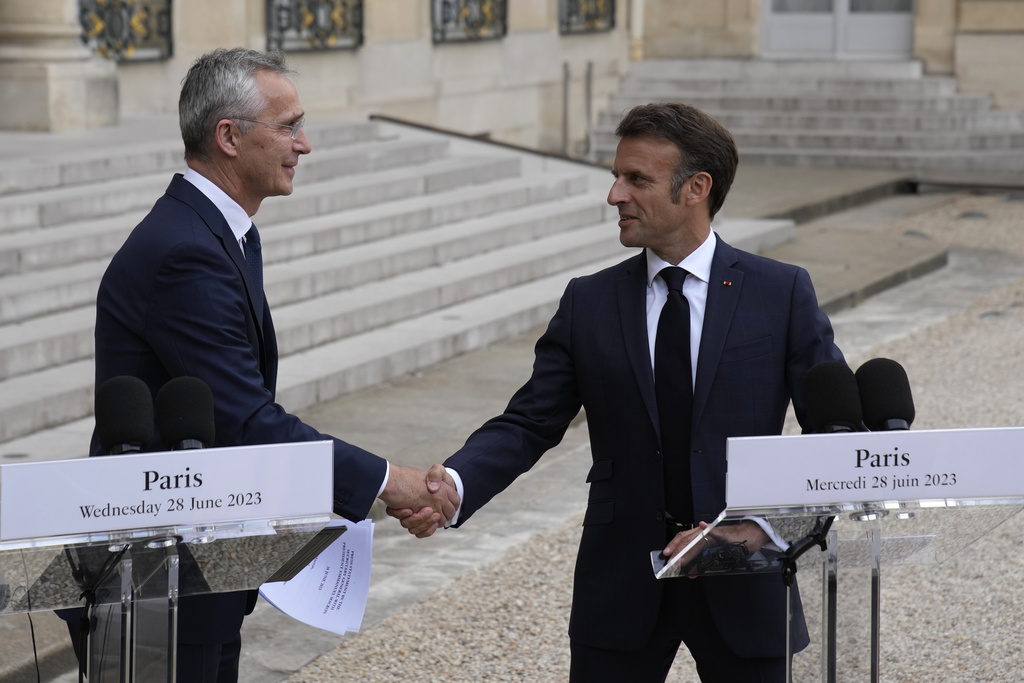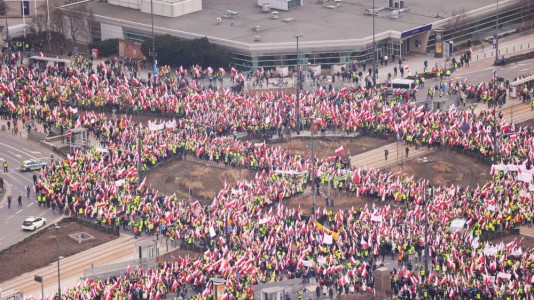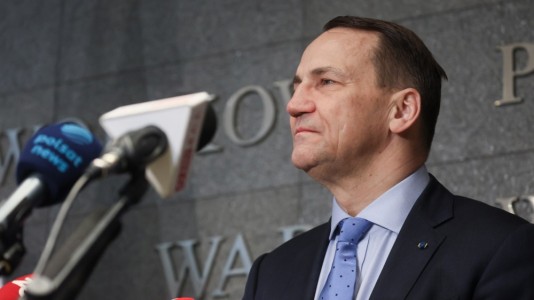NATO has no plans to send troops to Ukraine, but individual decisions by each country do not require unanimous support from all member states, Jens Stoltenberg, the NATO’s secretary general, told the AP news agency on Tuesday.
“Any decision to send NATO troops requires the unanimous support of all member countries, whereas individual decisions by individual countries do not require such unanimous support,” Stoltenberg explained.
However, for now, he is ruling out NATO troops in Ukraine, saying, “NATO allies are providing unprecedented support to Ukraine. We have done that since 2014 and stepped up after the full-scale invasion. But there are no plans for NATO combat troops on the ground in Ukraine.”
His comments on troop deployments signal that some Western nations may be inching towards a direct conflict with Russia. In such a scenario, French soldiers, for example, could be fighting Russian troops on the frontline of Ukraine, although not under the official banner of NATO. The move signals the conflict could reach a potentially new and far more dangerous phase.
While the NATO secretary general ruled out sending troops at the Alliance level, he also pointed out that “this is a war of aggression by Russia against Ukraine, blatantly violating international law.”
“According to international law, Ukraine of course has the right to self-defense, and we have the right to support them in upholding that right,” Stoltenberg continued.
He stressed that NATO, as an alliance, does not provide Ukraine with lethal weapons, but provides other forms of assistance, such as medicines, uniforms and winter equipment. However, the alliance’s member states also send weapons and ammunition on a bilateral basis or in groups.
French President Emmanuel Macron said on Tuesday that sending troops to Ukraine could not be ruled out.
“There is no consensus at this point on formally sending troops on the ground,” Macron said, although he did not say which countries were considering sending troops. Ukrainian President Volodymyr Zelensky said at a press conference in Kyiv on Sunday that Kyiv was not in talks with its partners to deploy troops on Ukrainian territory.
A number of NATO member states rushed to deny that their nations could become directly involved in the conflict.
German Chancellor Olaf Scholz said that “there will be no ground troops, no soldiers on Ukrainian soil who are sent there by European states or NATO states.”
At a Tuesday meeting, the prime ministers of the Visegrád Group, consisting of Czechia, Hungary, Poland and Slovakia, also ruled out sending troops to Ukraine.






